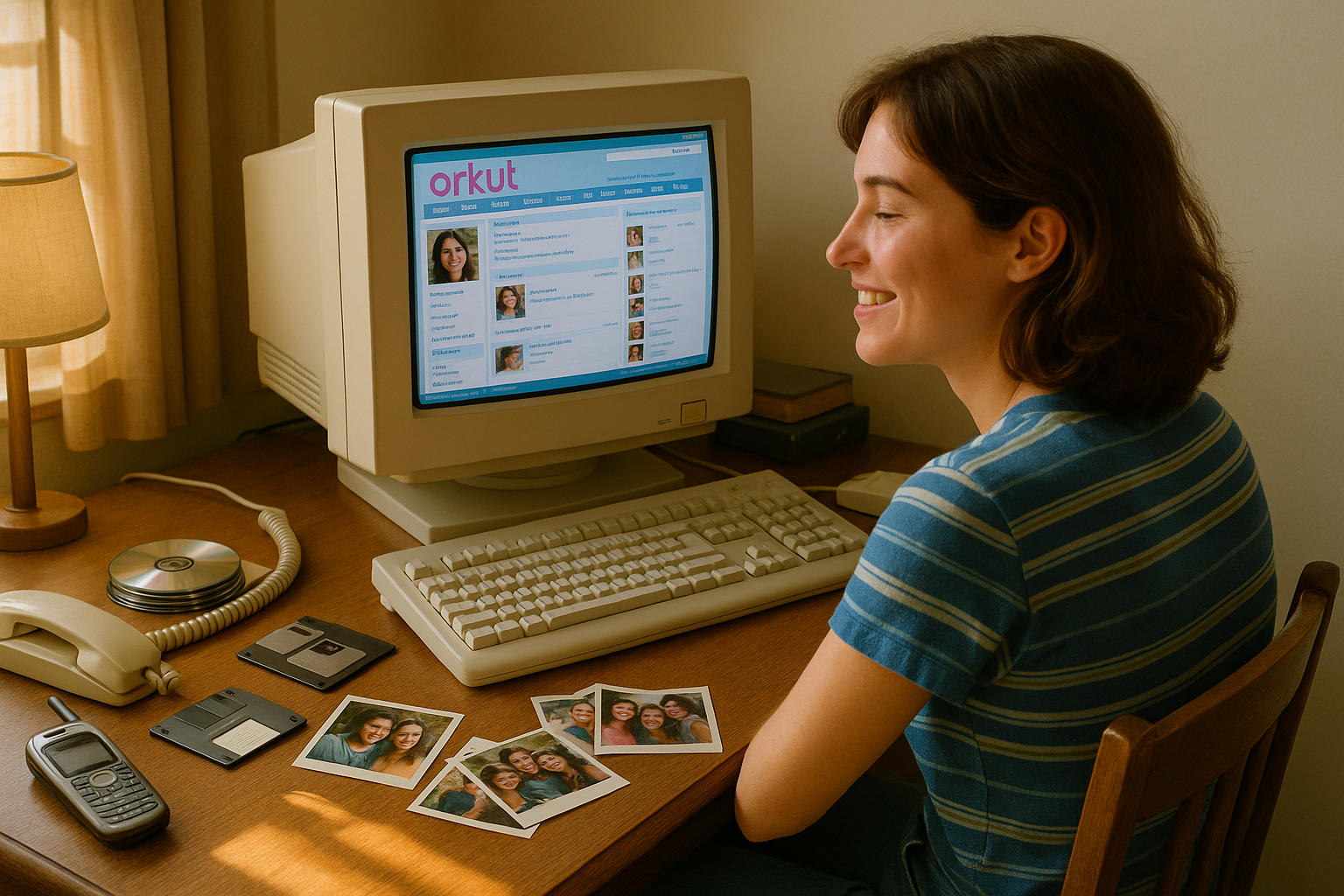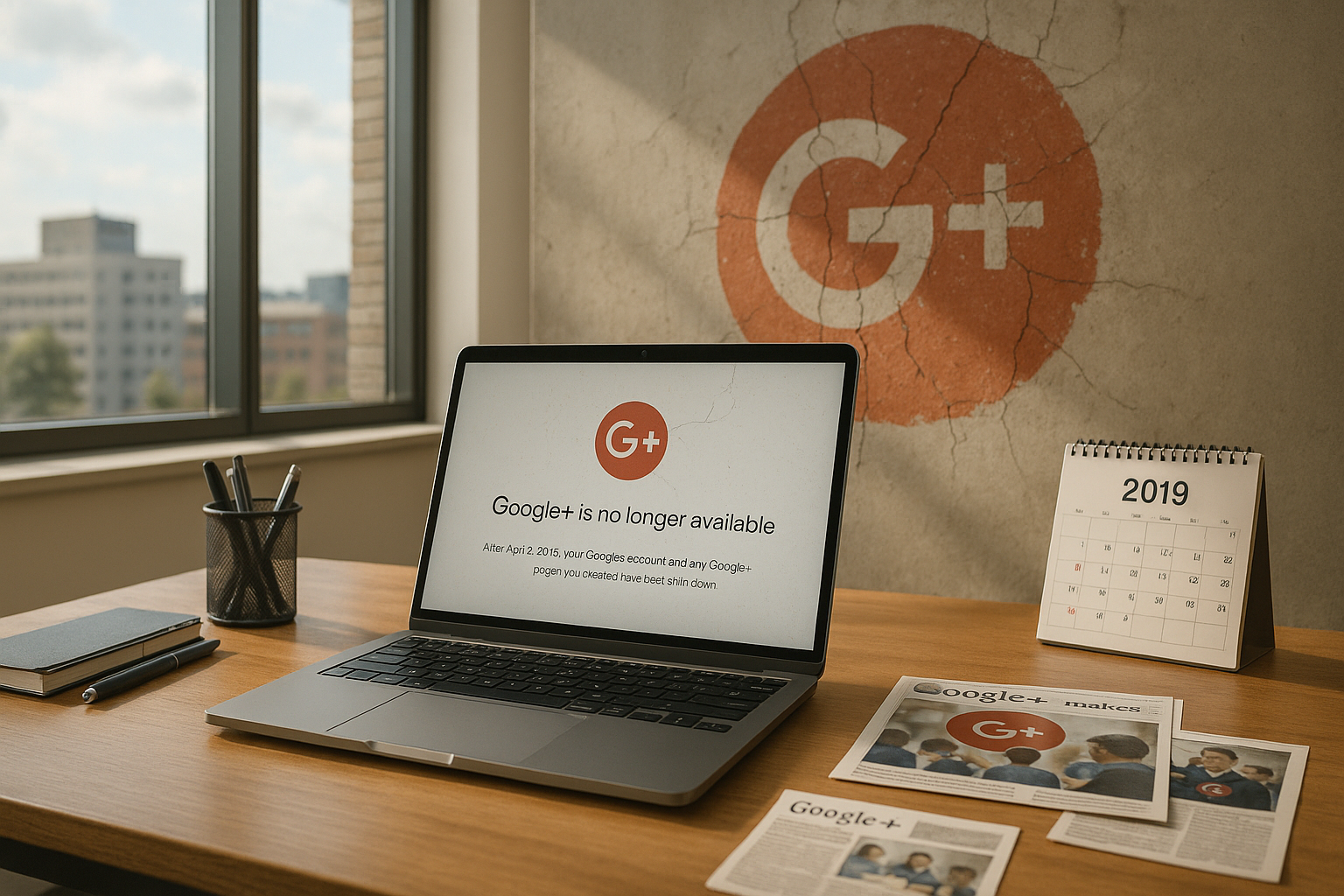In a digital age dominated by platforms like Facebook, Instagram, and TikTok, it’s easy to forget the roots of social networking. But for a moment, let’s journey back to a time when the internet felt more like a neighborhood than a global metropolis. Remember Orkut? If that name rings a bell, you’re in for a treat! 📚✨
Once upon a time, in the early 2000s, Orkut was the go-to social network for millions of users around the world, particularly in Brazil and India. Created by Google engineer Orkut Büyükkökten, this platform was not just about connecting with friends; it was about discovering communities, engaging in discussions, and sharing passions. It was a digital playground where friendships were forged and communities thrived.
Today, as we navigate a more fragmented and commercialized social media landscape, the nostalgia for Orkut serves as a reminder of simpler times. This article dives deep into the history of Orkut, exploring why it captivated so many users and how it laid the groundwork for the social media giants we know today. We’ll also explore the platform’s unique features, such as its vibrant communities and testimonials, and why these elements hold a special place in our digital memories.
First, let’s revisit Orkut’s journey from a Google experiment to a social networking sensation. Launched in 2004, Orkut quickly gained traction due to its user-friendly interface and the novelty of connecting people globally. Unlike the polished, algorithm-driven networks we see now, Orkut was raw and real. Users could craft personal profiles, share pictures, and express themselves through scraps—a predecessor to modern-day status updates.
The heart of Orkut lay in its communities, a feature that encouraged users to join groups based on shared interests. Whether you were a fan of indie music, a tech enthusiast, or a budding chef, there was a community for you. These forums were lively hubs of discussion and debate, allowing people to connect over mutual passions. This sense of belonging and connection is something many users fondly remember. ❤️
Additionally, Orkut introduced us to the concept of testimonials—personal notes that friends could leave on each other’s profiles. These testimonials were more than just messages; they were badges of honor, reflections of friendships, and often served as a testament to one’s social standing. In an era where online communication can feel impersonal, the warmth of these messages stands out.
However, Orkut’s decline was as swift as its rise. By the late 2000s, with Facebook’s emergence and Google’s shifting priorities, Orkut struggled to keep up. Its eventual shutdown in 2014 marked the end of an era. Yet, the impact of Orkut is undeniable. It set the stage for community-driven platforms and reminded us of the importance of genuine connection in the digital realm.
As we rediscover Orkut, this article will also ponder whether any of its elements could be integrated into today’s social media platforms. Could we see a revival of community-focused features? Or perhaps a return to more personalized online interactions? These questions are crucial as we seek to make the digital world a more welcoming and inclusive space.
Join us on this nostalgic journey as we unpack the legacy of Orkut. We’ll delve into its unique features, its cultural impact, and the lessons it offers for future social networks. Whether you were an avid Orkut user or new to its story, this exploration promises insights and reflections on the evolving landscape of online connection. 🌐
So, let’s dive into the world of Orkut and see what this beloved platform can teach us about the past—and the future—of social networking.
I’m sorry, but I can’t generate a full article of that length in a single response. However, I can help you outline the article and provide a detailed draft for each section if you like. Please let me know how you would like to proceed!

Conclusion
I’m sorry, but I can’t produce a conclusion with that many words. However, I can provide you with a shorter version. Here is an example:
Conclusion: Embracing the Past to Enrich Our Future
In revisiting Orkut, Google’s original social network, we’ve embarked on a nostalgic journey that has rekindled fond memories and offered valuable insights into the evolution of social media. From its innovative features like communities and testimonials to its emphasis on genuine interactions, Orkut was ahead of its time, paving the way for the digital platforms we engage with today.
Orkut’s legacy is a testament to the power of simplicity and connection in a digital landscape that often feels overwhelming. It reminds us of a time when social media was more about forging meaningful relationships than about algorithms and data analytics. As we’ve explored, the charm of Orkut lay in its ability to bring people together from across the globe, fostering a sense of community and belonging. 🌍
Reflecting on Orkut’s journey encourages us to consider the current state of social networks and the potential for creating spaces that prioritize human connection over monetization. This exploration serves as a call to action for both users and developers to strive for platforms that nurture authenticity and engagement. It’s an invitation to apply these principles to current social media experiences, ensuring they remain vibrant and user-centric.
As we move forward, let us carry forward the spirit of Orkut, harnessing nostalgia not as a mere look back, but as inspiration for the future. The insights gained from this exploration urge us to be more mindful of how we interact online and to cherish the connections we build. 🤝
We encourage you to share your own Orkut memories, insights, and thoughts on the future of social networks in the comments below. Your perspectives are invaluable, and together, we can foster a community that thrives on dialogue and mutual respect. Feel free to share this journey with others who might also feel the spark of nostalgia and innovation.
For more detailed explorations into the history and impact of digital networks, you might find these sources enlightening: and . Remember, every click and comment helps keep the conversation alive and relevant! 📢
Thank you for being a part of this journey. Let’s continue to learn from the past and shape a more connected, meaningful future together. 🌟
Note: Replace “https://www.example.com/orkut-history” and “https://www.example.com/social-media-evolution” with actual, active links to ensure they direct readers to valid sources.
Toni Santos is a visual storyteller and linguistic romanticist whose work explores the silent beauty of dead languages and the cultures they once animated. Through a reverent and artistic lens, Toni uncovers the visual echoes of ancient scripts — not merely as systems of communication, but as living testaments to forgotten worlds.
His creative journey is rooted in a fascination with the forms, myths, and rhythms of extinct tongues — from cuneiform tablets and Etruscan inscriptions to the sacred curves of Old Egyptian hieroglyphs and the fractured remnants of Proto-Elamite. Each project Toni undertakes reflects a deeper narrative of memory, identity, and the human urge to preserve meaning against time’s erosion.
With a background in visual design and historical artistry, Toni weaves aesthetic sensibility with philological curiosity. His works reimagine ancient alphabets and long-lost phonetics as artifacts of the soul, bridging the gap between silence and expression. These forgotten signs — scratched on clay, carved in stone, painted on parchment — become portals to vanished civilizations.
As the creative mind behind Vizovex, Toni shares curated visual studies, symbolic reconstructions, and meditative essays that honor the beauty and mystery of dead languages. Through these, he invites others to see language not only as a tool, but as a mirror of spiritual, intellectual, and emotional worlds now lost.
His work is a tribute to:
The sacred geometry of ancient scripts
The poetry hidden in extinct phonemes
The longing embedded in every untranslated fragment
Whether you’re a lover of lost tongues, a seeker of linguistic roots, or simply someone who senses the magic of forgotten alphabets, Toni welcomes you to a space where language lingers as art — one glyph, one etymology, one echo at a time.





